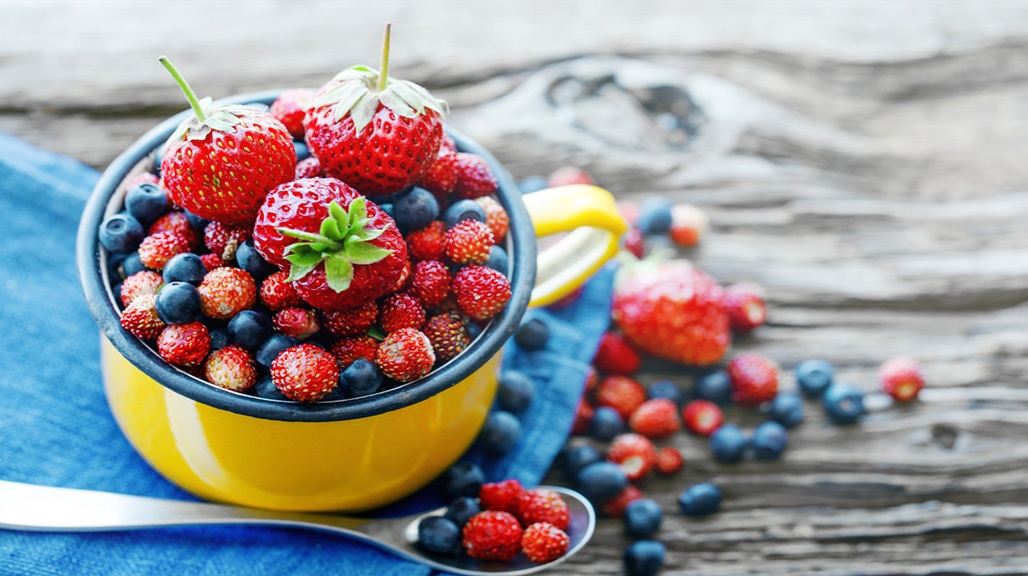Best Nutrient-Dense (Affordable) Food For A Strong Immune System
 Contributed by
Liza Rowan
January 17, 2017
Contributed by
Liza Rowan
January 17, 2017

As we all strive to get a little healthier, it can sometimes be a little frustrating, figuring out where to start. This will of course also depend on where you currently are nutritionally, and to where you wish to progress.
A good place to start in making improvements is with the basics – “10 Tips to a Healthy Happier You”1, in case any of these are areas that you might like to work on.
Keeping a Health Journal is very insightful, and you can work on making a few small changes every week, which soon becomes a natural part of your routine. My approach is a practical, realistic one – I appreciate that we all lead busy lives and can’t spend so much time in the kitchen, nor can most of us afford the obscure latest ‘superfood’.
Everyday foods in nature provide most of us with the basic nutrition that we need. Enjoy foods raw and cooked as both provide benefits; as always there are exceptions when one is preferred over the other. Also, nutrients help each other in their absorption (e.g. vitamin C with iron), so the more mixed and colourful your plate, the better!
Assuming you’ve embraced a wholesome, clean, no-sugar, additive-free diet, then here are some specific food sources you can incorporate on a regular basis to help build up your immunity.
The food listed here are rich in minerals and vitamins, which all are required for strong immunity, along with phytonutrients. These are common compounds across plant foods that have health promoting characteristics – e.g. as anti-oxidants, anti-inflammatories, carminatives (relax the digestive tract for example), anti-carcinogens etc.
Examples Of Immune-Building Phytonutrients:
- Carotenes give plants their orange colour, and are anti-oxidants preventing damage from free radicals (toxins and stresses that we are exposed to)
- Glucosinolates are sulphur containing compounds known for their anti-cancer properties. These give a bitter flavour to vegetables such as garlic, onion, and cruciferous vegetables. (Note – The latter can impact iodine absorption, important for our thyroid, so take care not to over-consume raw if this is a concern)
- Flavonoids provide anti-bacterial, anti-inflammatory, and anti-carcinogen properties among others – they provide pigmentation to fruits, vegetables, and herbs and spices
Hence, unless there are specific reasons to avoid certain foods, a wide variety, including a ‘rainbow’ of fruits, vegetables, herbs and spices, is recommended. I believe that first and foremost we must look to our food choices for nutrients, and then supplementation is of course a top-up option, and in some cases medically recommended to address a vitamin or mineral or deficiency.
A word of caution however: It is possible to reach toxic levels with minerals and certain vitamins. For example, when I was diagnosed with Hashimoto’s I was advised to take selenium 200mcg daily, as this has shown to help (and not necessarily iodine, contrary to what many people assume). After a couple of months I was starting to feel a little down, noticed I was losing some hair – so I began to wonder if I had reached a toxic level. Sure enough, a blood test proved that this was the case – my usual 2 brazil nuts daily, along with salmon etc was providing more than enough selenium. So lesson learned: Before taking supplements for nutrients that can reach toxic levels, get a blood test done first.
OK, back to some general foods to include in your diet:
Leafy Greens
Consume these daily in a juice, salad, or stir-fry
- Based on their weight, richest in nutrients of any food
- Contain vitamins A, C, magnesium, potassium, iron, folic acid
Berries
Enjoy four to five times a week when in season
- Rich in antioxidants (vitamins A,C,E, selenium) and phytonutrients
- High in fiber, and minerals manganese, copper
- Contain anti-inflammatory, anti-aging properties
Cruciferous Vegetables
Consume varied three to four times weekly
- Contain carotenoids, vitamins C,E,K, folic acid, and minerals
- Also have phytonutrients, glucosinolates (sulfur-containing compounds)
- The protect bodily cells, and are reported to inactivate carcinogens and inhibit tumors
Omega 3, DHA/EPA Essential Fats
Recommend two to threetimes weekly from oily fish (salmon, sardines, herring, trout, tuna occasionally) and ‘topped up’ daily with nuts/seeds, leafy greens
- Encourage cell growth & help rejuvenate
- Help eliminate toxins and protect against inflammation
- Enhance immunity
- Improve mood & brain function and support brain development
Of course there are a host of other healthy foods we should incorporate into our diet – avocados and olives for their heart healthy mono-unsaturated fats, beetroots to help cleanse our liver, chickpeas containing molybdenum to help rid of sulphites, cinnamon as a natural sweetener and helping to control blood sugar levels, coconuts for their lauric acid and anti-bacterial properties, eggs for choline which contributes to a healthy liver, ginger to aid digestion…. But I feel this blog is long enough already! Congrats if you’ve read this far!
The last point is that unless we have a healthy gut, or microbiome, the nutrients from our food will not be properly absorbed. Various factors contribute to a ‘leaky gut, and many things help. Watch out for my next blog!
Download Liza’s Ultimate Nutrition and Wellness Guide for Working Individuals for Free
Visit the Health & Vitality page to find out more about Liza's business.
* Cultural Training Asia runs Women in Leadership and subconscious bias programs, helping individuals and teams develop Cross Cultural Competence. I recently presented at one of their events on Staying Healthy in the Work Place to a group of very talented and progressive ladies here in Singapore.
I also invite you to join my Linkedin Group - Singapore Nutrition, Health & Wellness Singapore











Sorry, the comment form is closed at this time.